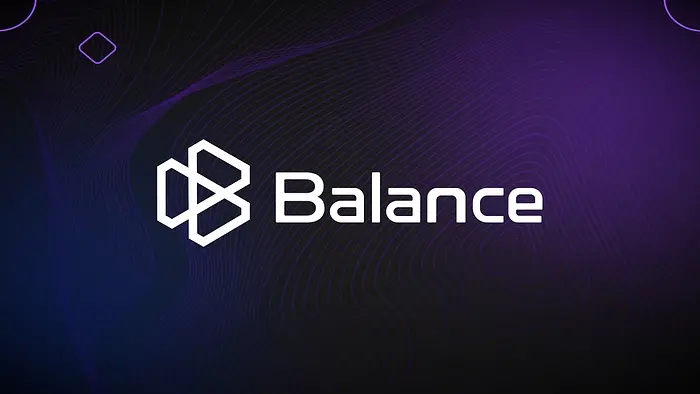Cryptocurrency tycoon, waiting for the chaos to end
Author: WILL GOTTSEGEN
Translator: Block unicorn
Changpeng Zhao (CZ), the CEO of Binance, has recently been avoiding public attention. However, after the astonishing rise of Sam Bankman-Fried (SBF, founder of FTX), all eyes have turned to this mysterious tycoon of the crypto world.
The news came suddenly and was decisive: Binance Global, led by Zhao, announced plans to acquire its biggest competitor, FTX, which is led by the young American SBF. This seemed like a move of world-historical significance. SBF not only abandoned his once-thriving business but actually capitulated, selling off everything left of the visibly weakened FTX as scrap.
However, just as the deal was announced, it vanished. Binance canceled the transaction the next day, stating that "the issues are beyond our control or ability to help." On November 11, FTX collapsed, wiping out an estimated $1 trillion in global cryptocurrency value and forever tarnishing the reputation of the crypto industry.
SBF, the frizzy-haired Silicon Valley prodigy and son of two Stanford law scholars, has become one of the most notorious alleged criminals in financial history. Books, TV shows, and movies about the FTX disaster are emerging, undoubtedly ensuring SBF's lasting presence in culture. However, if you don't follow cryptocurrency, you may have never heard of CZ, despite his business empire and personal wealth surpassing that of SBF. This mysterious Zhao has always been the true crypto mogul, and this mystery is not accidental.

SBF being taken away in handcuffs by the Bahamian Royal Police in Nassau on December 13, 2022
But now, as the head of the largest and most important exchange in an industry under strict scrutiny, Zhao is more exposed than ever: at the end of March, Binance was sued by the Commodity Futures Trading Commission (CFTC) for allegedly orchestrating a large-scale plan to evade U.S. laws. Binance is already under investigation by the U.S. Department of Justice, the IRS, the Securities and Exchange Commission (SEC), and other global regulatory bodies. In the wake of SBF's collapse, the spotlight that Zhao had been avoiding is now on him.
Senator Van Hollen, who has been monitoring Binance, said, "Clearly, Zhao has been lurking in the shadows, and it's hard to say where they (Binance) operate and what they are doing. This is very important as our concerns about the stability of fund storage are growing. We just experienced the collapse of SVB, which was a regulated bank with at least some scrutiny, while in the case of Binance, we know nothing; it's a black box. So I worry it could collapse, and many people could lose a lot of money."
So, who is Zhao Changpeng? What is he hiding?
In a blog post in 2018, Zhao wrote, "Just an ordinary person doing a job that needs to be done, that's all."
What we know is that Zhao was born in Qinkou Town, Jiangsu Province, China, in the late 1970s. Reports indicate that he and his family left the rural area for Hefei when Zhao was 12, and then immigrated to Vancouver.
Zhao had many part-time jobs in his teens, the most notable being a two-year stint at McDonald's, where he reportedly earned CAD 4.5 per hour. The McDonald's job is an important part of Zhao's legendary story — this fast-food chain has somewhat become a meme in the cryptocurrency world (similar to how failing in stocks or crypto means having to work at McDonald's), symbolizing the fate that failed traders may face.
He then followed in the footsteps of his academic father, studying computer science at McGill University in Montreal. After graduating, he worked as a software developer in Bloomberg's trading department. Zhao's direct supervisor at Bloomberg described him as "a smart software tech expert with excellent interpersonal skills," but added that he "was not a typical Wall Street jerk" and "not a typical tech misanthrope."
After leaving Bloomberg, Zhao moved to Shanghai and co-founded a financial software company called Fusion Systems. A poker game in 2013 introduced him to Bitcoin, and Zhao immediately sold his apartment in Shanghai, bought $1 million worth of Bitcoin, and resigned from Fusion to enter the cryptocurrency industry. Over the next four years, he worked at various cryptocurrency startups until co-founding Binance in China in 2017, dreaming of creating a global hub for digital assets.
The key to the platform's success was its role as an entry point for the entire industry: if you wanted to own some Bitcoin or use any cryptocurrency-based web applications, you needed to convert fiat currency into cryptocurrency. For tens of millions of users worldwide, Binance was the place to achieve this, offering enough ease of use for beginners and sufficient analytical tools for professionals. It achieved success almost immediately, attracting 120,000 users in the first 45 days of operation. Today, that number has grown to 120 million, making Binance the largest exchange in the cryptocurrency space. Due to his stake in the company, Zhao is now one of the 60 richest people in the world.

He Yi co-founded Binance with Zhao in 2017
Zhao co-founded Binance with a woman named He Yi, who has held various positions at the exchange. Once a television anchor in China, she was appointed head of Binance's venture capital department last year, managing $7.5 billion in funds. Now, she is the company's Chief Customer Service Officer and one of the few female leaders in the cryptocurrency space. In an interview, she stated, "Forget your gender; don't focus too much on whether you are in a male or female-dominated world. Instead, focus on how to be a great business leader, regardless of gender." There is also a personal connection between her and Zhao: they have two young children together, although little is known about their relationship.
It quickly became clear that Binance's leadership operated by its own rules. A few months after Binance was established, China began threatening a crackdown on the entire cryptocurrency industry, prompting Zhao to choose to relocate the business to friendlier jurisdictions — first moving the company's headquarters to Japan and then to Malta. When even Malta's regulatory requirements seemed too strict for Binance, the company set off again.
During SBF's rise, he cultivated friendly relationships with politicians and journalists, made strategic donations to both parties, funded major media outlets like ProPublica, Semafor, and The Intercept, and secretly supported a cryptocurrency news outlet called The Block.
Zhao took a more direct approach. When Forbes published an exposé in 2020 about Binance allegedly attempting to evade U.S. regulation, Binance directly sued Forbes for defamation; a year later, Binance announced plans to purchase $200 million worth of shares in the soon-to-be-public media giant. Forbes confirmed to me that this investment ultimately did not materialize because the IPO plans collapsed, but the announcement itself demonstrated Zhao's actual purchasing power, as he could always compensate for shortcomings with pure buying power, whether in court influence or favor in traditional media. (No wonder Zhao is reluctant to accept interviews from traditional media like Rolling Stone — through Binance's representatives, he has declined multiple interview requests.)
However, Zhao is not silent. He is very active on his blog and Twitter, where he feels comfortable engaging with a core user group immersed in high-risk cryptocurrency trading and communicating with memes that can only be understood after years of following. When an anonymous YouTuber made a meme video suggesting Binance's website was down, Zhao quoted the meme in the company's official policy, indicating he knows how to play along (which also means he knows how to market).

Zhao's familiarity with cryptocurrency culture has granted him a certain credibility within the industry, even as he refuses to disclose details about his business structure. Since Binance operates outside the U.S., it has so far been unbound by the U.S. regulatory framework and does not need to disclose its operational methods rigorously. Even though Coinbase claims it "has no headquarters," it is still a publicly traded company registered in Delaware, legally accountable to shareholders and customers. While Binance has a U.S. division, it is not required to adhere to the same set of regulations. You can find Binance offices in places like Paris, Dubai, and Abu Dhabi, but as of 2023, there is still no clear answer to the question of where Binance's true headquarters is. Zhao told Fortune magazine, "Cryptocurrency has different rules in different places, so we are not trying to bend or even evade the rules; we are just looking for more favorable locations." (A spokesperson for Binance told me, "We are undergoing a corporate restructuring aimed at providing regulators with more clarity about our organization.")
Zhao has remained without a fixed residence, although earlier this year, he stated in a rare interview with Crypto Wealth that he splits his time between Paris and Dubai.
William & Mary law professor and frequent cryptocurrency commentator, Rohatyn Gray, said, "Zhao's greatest skill is his lack of commitment to any one place, which is a skill needed for CZ to evade risks, allowing him to play different roles in different locations like a crypto vagabond."
The implied bet is that if customers cannot determine Binance's actual company location, perhaps regulators cannot either. Despite the CFTC's statement in March accusing Binance, CFTC Chairman Rostin Behnam specifically noted that "claiming to have no specific address will not prevent the CFTC from protecting U.S. investors."
But now, this crypto vagabond has become a focal point for the U.S. government. In March, Maryland Senator Chris Van Hollen (Democrat), Massachusetts Senator Elizabeth Warren (Democrat), and Kansas Senator Roger Marshall (Republican) jointly signed a letter expressing concern about "Binance's role in evading regulation, moving assets for criminals and sanction evaders, and hiding basic financial information." Although the company quickly stated that the letter was based on "incorrect or incomplete" reporting and a "misunderstanding" of the company, it marks the clearest attention from legislators towards Binance in the post-SBF era.
Zhao and his enterprise are still dealing with the fallout from the aborted 24-hour FTX deal, as the cryptocurrency world is in chaos, having lost much of the momentum that supported it in 2021 and early 2022, with various asset prices plummeting. Businesses are abandoning partnerships with cryptocurrency (remember Instagram's NFTs?), and U.S. regulators have launched what some believe to be a targeted effort to mitigate the damage caused by FTX and the infamous SBF.
The blurred lines between Binance Global and Binance U.S. are part of the reason for regulators' concerns. In the first two years of Binance, all customers were directed to the same website, but in 2019, when Binance decided to conduct a more thorough audit of U.S. customers, it established a completely independent entity and barred U.S. traders from using the original Binance platform. The problem is that due to a relatively simple technical workaround (known as a VPN), anyone can still theoretically access the Binance Global site from the U.S. (with lower fees and more lenient user identification).
CFTC Commissioner Christy Goldsmith Romero told me that she has seen this pattern of international companies intentionally or unintentionally circumventing U.S. regulation develop throughout the industry, although she was reluctant to comment specifically on the ongoing case against Binance. "I see risks similar to those in 2008 with cryptocurrency, as well as some new risks. If you want to gain the benefits of entering the U.S. market, then you must go through the necessary steps to obtain that permission, which requires regulation." Zhao has consistently stated that Binance is doing everything possible to comply with U.S. laws. Regarding blocking U.S. VPN users from accessing Binance Global's trading services, Zhao wrote in a March blog post that he "doesn't know of any company that has a system more comprehensive or effective than Binance."

Not everyone shares the same view on why Binance seems to be the focus of the U.S. government right now. For SEC Commissioner Hester Peirce, who was appointed by Trump and has long defended cryptocurrency, the ambiguity in regulation is actually more the government's responsibility than that of the private crypto sector. "We are now in a situation of our own making, where we have not provided a registration pathway for entities wishing to trade crypto assets," she told me. "If we had done that, many of the questions about where different operations' headquarters are might have to be answered."
But for others, including Senators Warren and Van Hollen, Binance's actions are the real cause for concern — actions that demonstrate "a blatant attempt to evade global financial regulators."
Earlier this year, Zhao tweeted that he hoped to keep 2023 simple, spending more time on fewer things to know what to do and what not to do, focusing on four things: 1) education; 2) compliance; 3) products and services; 4) ignoring FUD, fake news, and attacks. Additionally, Zhao stated that there are no products without security in the crypto industry and to never aim for money.
Among those four options — "ignore fear, fake news, attacks, etc." — when his business and personal life are under attack and scrutiny, he tells everyone not to worry about FUD (which means fear, uncertainty, and doubt), implying to them: "Don't pay attention to anything they say."
"May the 4th be with you," he wrote on Star Wars Day. "Ignore FUD, keep building!" He tweeted this in December last year, during which time blockchain regulators warned about traders suddenly withdrawing billions of dollars from the platform without explanation. (He also seemed to refer to Bloomberg's report about the missing $1 billion as "fear, uncertainty, and doubt.") When a similar situation occurred months later in response to the CFTC lawsuit, Zhao tweeted about "traditional media writing erroneous narratives."
However, as Zhao dodges and evades questions, the entire industry holds its breath. Zhao is not only responsible for Binance; the cryptocurrency industry cannot afford a reputational hit like SBF's. "To some extent, FTX's bankruptcy spectacularly helped eliminate some of the most severe corruption issues and bore the brunt of the blows that other ecosystems were unwilling to bear and tried to avoid," Rohatyn Gray speculated. "So Zhao has bought more time in this regard, but I see no reason to believe that the fundamental health of their business model is any better."
Binance's market share remains enormous — two-thirds of all cryptocurrency trades occur on its site — but for Gray and other commentators, the regulatory grace period may be coming to an end. Facing increasing threats, CZ has hired white-collar defense attorneys from Latham & Watkins to represent him personally and has added hundreds of employees to Binance's compliance department. The company's head of financial crime compliance recently told The New York Times, "Binance sees itself as a tech company, which may help explain its practices; they have broken some principles, hinting at principles from the tech world, 'move fast and break all the rules,' and all exchanges are doing this."









